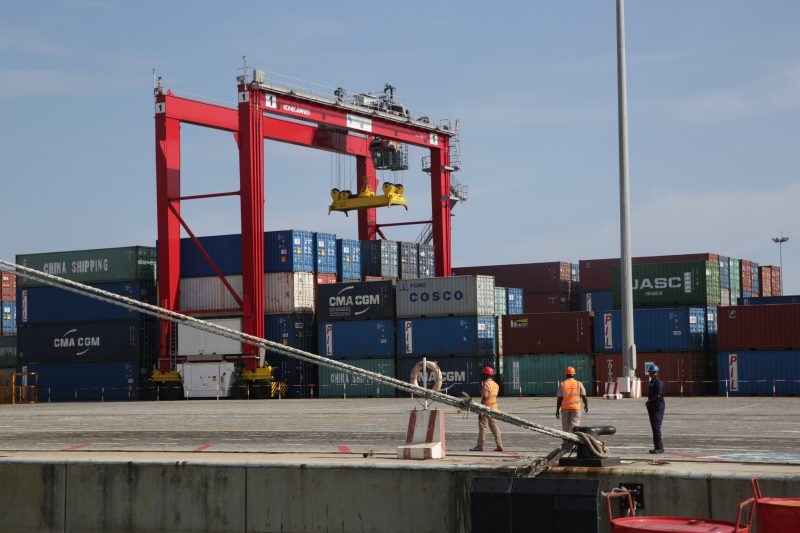
MCC’s investment in Benin helped catalyze a PPP between the Government of Benin and a private container terminal operator for a long-term concession to operate the new South Wharf.
For MCC, partnering with the private sector is an important option to help fulfill our mission of promoting economic growth and reducing poverty in lower and middle-income countries. To this end, MCC seeks to support public-private partnerships (PPPs) – which the World Bank defines as a “long-term contract between a private party and a government entity, for providing a public asset or service, in which the private party bears significant risk and management responsibility, and remuneration is linked to performance” – as a tool for helping to achieve development objectives. For PPPs to work effectively, though, information is vital. Private sector investors need to know about the investment environment in countries with which they are considering working. Other stakeholders, such as governments and donors, need to know what steps to take to encourage private sector investment.
To address information gaps, we commissioned studies by the Economist Intelligence Unit using its Infrascope methodology to assess the enabling environment for PPPs in 20 of our country partner countries. Infrascope benchmarks 69 countries and provinces across five areas related to PPP programs (i.e., regulations, institutions, maturity, investment & business climate, and financing), and has the potential to be a valuable tool for a range of audiences.
- For the private sector, it can make market-entry decisions easier for PPP investors in frontier markets, saving them time and money on initial country due diligence. Infrascope can help overcome information barriers and alter country perceptions for investors. It can also help put countries on the map for PPPs, and encourage investors to look at a place like Côte d’Ivoire and Kosovo instead of Colombia and Costa Rica. The Blended Finance Task Force of the Business & Sustainable Development Commission, of which MCC is a member, noted the importance of information for institutional investors in helping to create the market for infrastructure finance. Tools such as Infrascope can be part of this menu of key information for investors. Nevertheless, Infrascope does not replace project-level due diligence.
- For donors and governments, the Infrascope studies provide specific recommendations on how to improve the PPP enabling environment. Accordingly, Infrascope can provide valuable insights on how to promote blended finance to unlock private sector financing for sustainable development.
- For MCC, Infrascope can also help in due diligence and design of PPP programs, and by informing monitoring and evaluation (M&E) plans. Currently, MCC’s PPP program in Guatemala is using Infrascope for M&E. Other donors may also be able to use the indicators from Infrascope for similar purposes.
- Finally, Infrascope can serve as a knowledge product and global public good that can assist a broad range of stakeholders and users, including for business and academic research. The results of Infrascope are available without charge to policymakers, governments, civil society, educational institutions, and any other stakeholders or interested parties.
An important part of our work at MCC focuses on bringing well-structured PPPs to market in our partner countries to support our mission. We also work to strengthen our partner countries’ enabling environments for PPPs and their capacity to develop and manage well governed PPPs. Indeed, PPPs can offer better value for money (VfM) when they are affordable to governments and to end-users, as long as one of two conditions is met: (1) the private sector partner is able to deliver a public service of better quality and reliability for the same cost; or (2) the private sector can offer a lower cost for a specified quality of service compared to the public sector.
We have also seen that PPPs can encompass a range of other benefits, including attracting private financing, project acceleration, risk transfer, life-cycle efficiencies, and knowledge transfer. However, these benefits must outweigh any costs of contracting and financing associated with PPPs to ensure VfM. Moreover, it is important that PPPs be designed to address poverty and gender concerns to help achieve social and economic objectives, and that governments are able to manage any direct and contingent liabilities associated with PPPs.
Therefore, to encourage a strong private sector role, MCC works on blended finance solutions across the PPP cycle, from legal/regulatory frameworks, to institutional capacity building, to assisting with project preparation and deal facilitation, including support for transaction advisors, viability gap funding, and guarantees.

